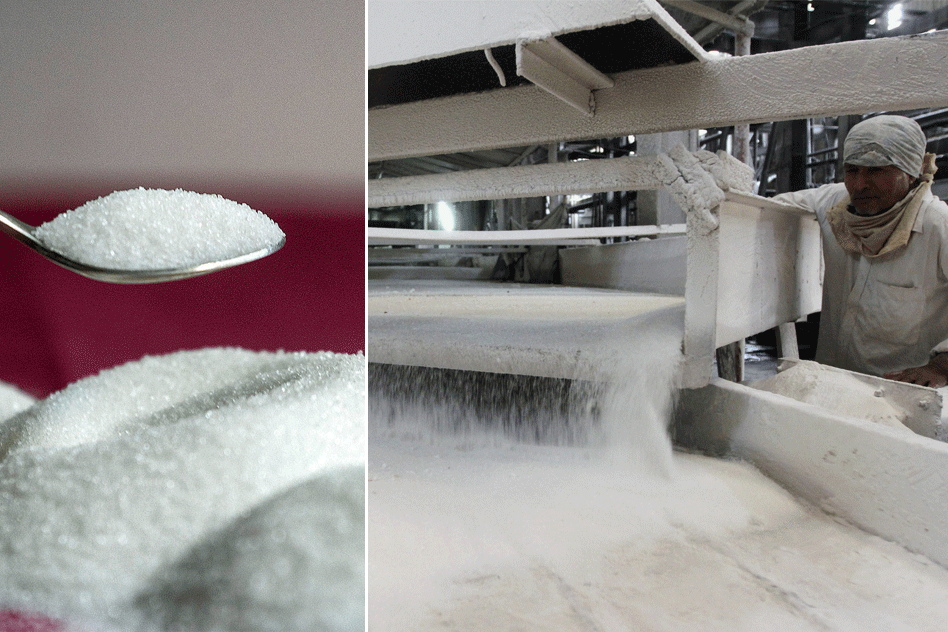How The Sugar Industry Paid Harvard Scientists & Shifted Blame Of Heart Diseases To Fat
17 Sep 2016 12:53 PM GMT
The Revelation
The sugar industry paid scientists in the 1960s to downplay the link between sugar and heart disease and promoted saturated fat as the culprit instead, newly released historical documents show.
That revelation, published Monday in JAMA Internal Medicine, comes from Dr. Cristin Kearns at the University of California, San Francisco, a dentist-turned-researcher who found the sugar industry’s fingerprints while digging through boxes of letters in the basement of a Harvard library.
Her paper recounts how two famous Harvard nutritionists, Dr. Fredrick Stare and Mark Hegsted, who are now deceased, worked closely with a trade group called the Sugar Research Foundation, which was trying to influence public understanding of sugar’s role in disease.
Spreading Prevarications in Science
The Sugar Research Foundation (SRF), known today as the Sugar Association, solicited Hegsted, a professor of nutrition at Harvard’s public health school, to write a literature review aimed at countering early research linking sucrose to coronary heart disease. The Sugar Association paid three Harvard scientists the equivalent of US$50,000 (S$68,000) in today’s dollars to publish a 1967 review of sugar, fat and heart research though the researchers never publicly disclosed that funding source, Kearns found.
The studies used in the review were hand-picked by the sugar group, and the article, which was published in the prestigious New England Journal of Medicine (NEJM), minimised the link between sugar and heart health and cast aspersions on the role of saturated fat. The warped research appeared in a 1967 literature review in The New England Journal of Medicine. It pointed to fat and cholesterol as the dietary culprits of heart disease, glossing over evidence from the 1950s that sugar was also linked to heart disease.
That was an era when researchers were battling over which dietary culprit — sugar or fat — was contributing to the deaths of many Americans, especially men, from coronary heart disease, the build-up of plaque in arteries of the heart, a condition called atherosclerosis. Kearns said the papers, which the trade group later cited in pamphlets provided to policymakers, aided the industry’s plan to increase sugar’s market share by convincing Americans to eat a low-fat high-sugar diet.
Food Industry Funding of Nutrition Research
Dr. Walter Willett, chairman of the nutrition department at the Harvard T. H. Chan School of Public Health, said that academic conflict-of-interest rules had changed significantly since the 1960s, but that the industry papers were a reminder of “why research should be supported by public funding rather than depending on industry funding.”
Dr. Willett said the researchers had limited data to assess the relative risks of sugar and fat. “Given the data that we have today, we have shown the refined carbohydrates and especially sugar-sweetened beverages are risk factors for cardiovascular disease, but that the type of dietary fat is also very important,” he said.
Marion Nestle, a nutrition expert at New York University who was not involved in the paper, said she’s still not convinced by those who argue that “sugar is poison” — a person’s total calorie consumption could matter more. But she called the UCSF findings a “smoking gun” — rare, hard evidence of the food industry meddling in science.
“Science is not supposed to work this way,” she wrote in an accompanying commentary. “Is it really true that food companies deliberately set out to manipulate research in their favour? Yes, it is, and the practice continues,” Nestle added, noting that Coca-Cola and candy makers have both tried recently to influence nutrition research.
In a statement, the sugar trade group said industry-funded research has been unfairly criticized.
“We acknowledge that the Sugar Research Foundation should have exercised greater transparency in all of its research activities,” said the trade group, which now goes by the name the Sugar Association. Beyond that, “it is challenging for us to comment on events that allegedly occurred 60 years ago, and on documents we have never seen.”
“Sugar does not have a unique role in heart disease,” the group maintained. “We’re disappointed to see a journal of JAMA’s stature” using “headline-baiting articles to trump quality scientific research.”
The Sugar Industry’s Role in Today’s Chronic Disease Epidemic
Researchers Cristin Kearns, Laura Schmidt and Stanton Glantz of the University of California at San Francisco (UCSF) combed through hundreds of SRF documents and found evidence that the sugar industry had manipulated the science to exonerate sugar as a dominant cause of heart disease—an action that shifted the direction of scientific research for decades. This is how the sugar industry derailed nutritional researches since 1960s by heavily paying the World’s known intellectuals and scientists at that time though the reality is quite obscured from the public and undisclosed to the fellow researchers as well. Temporal patterns over the past four to five decades have shown a close parallel between the rise in added sugar intake and the global obesity and type 2
 All section
All section














